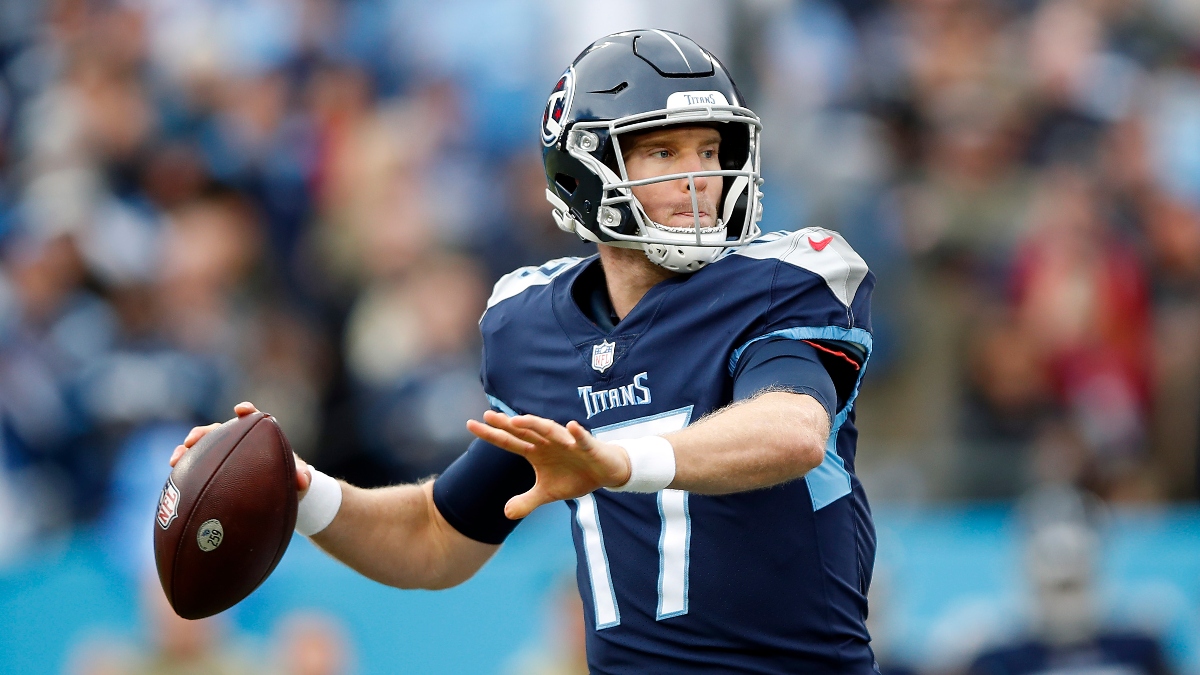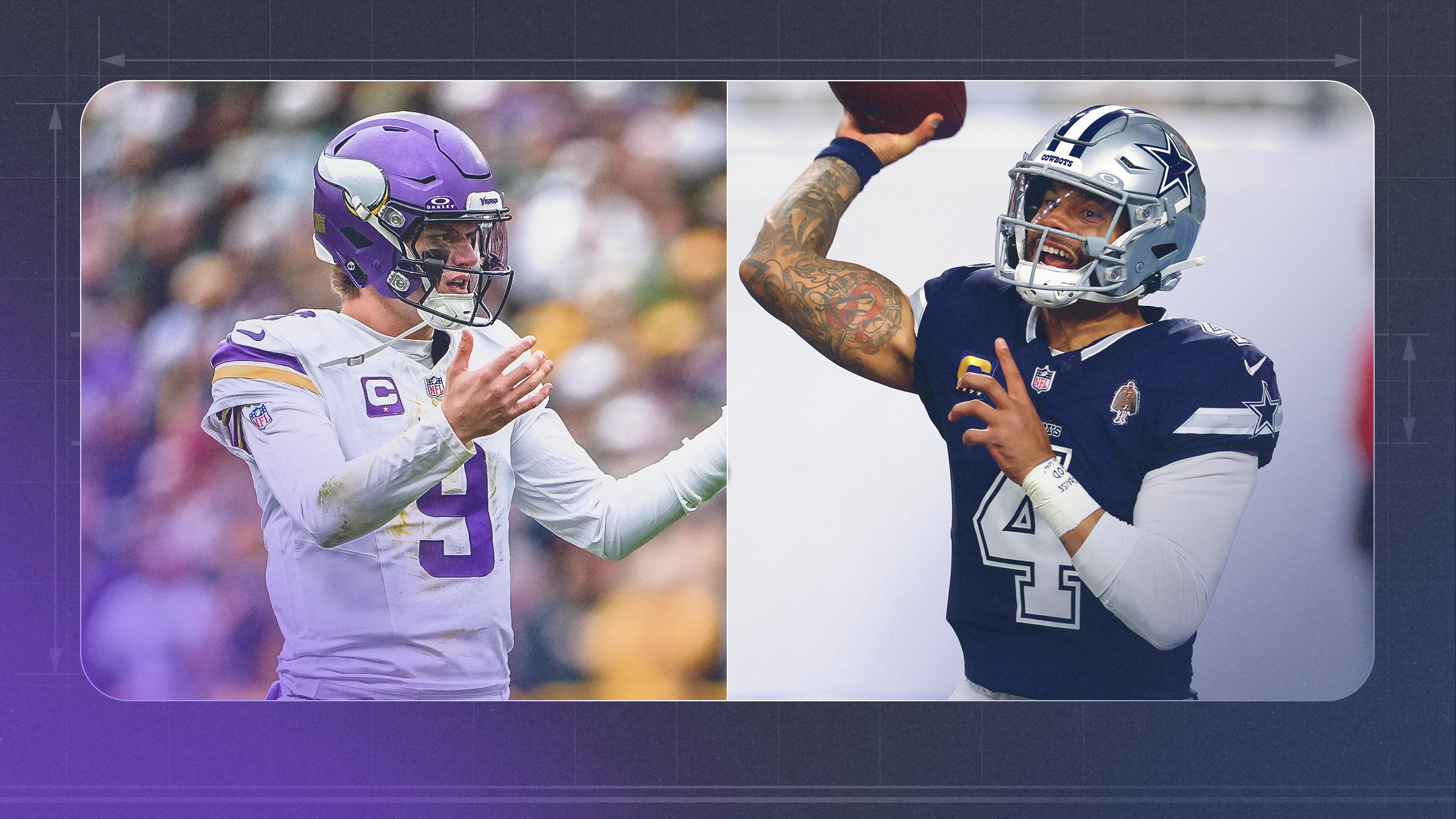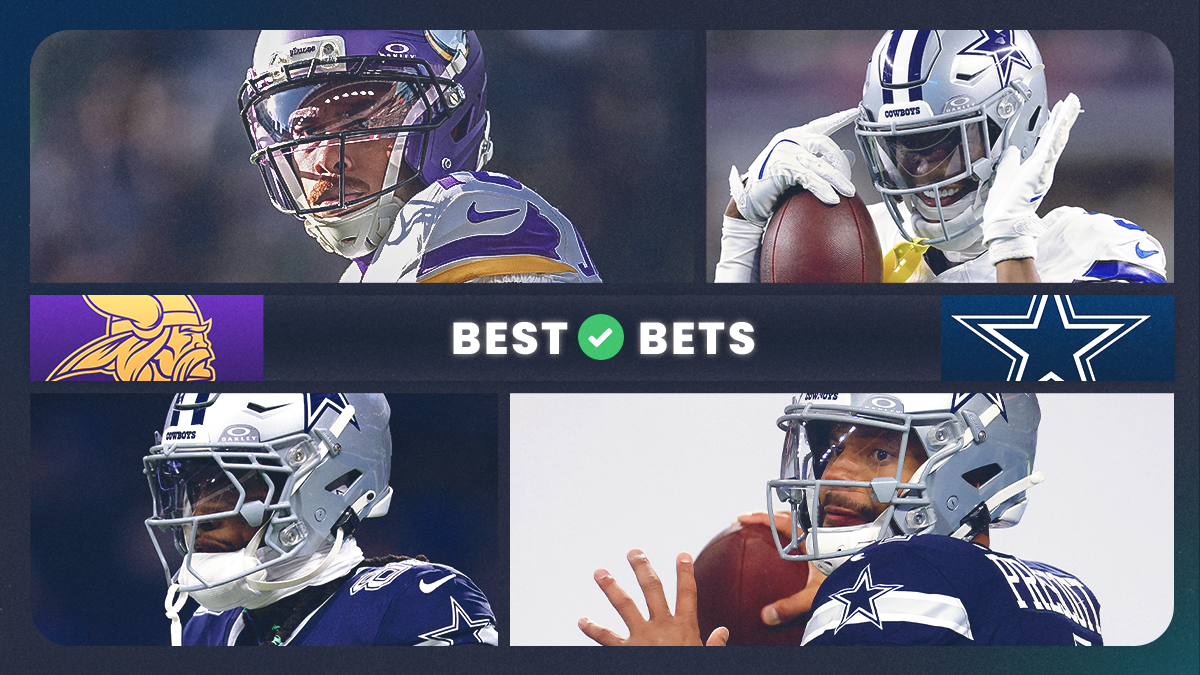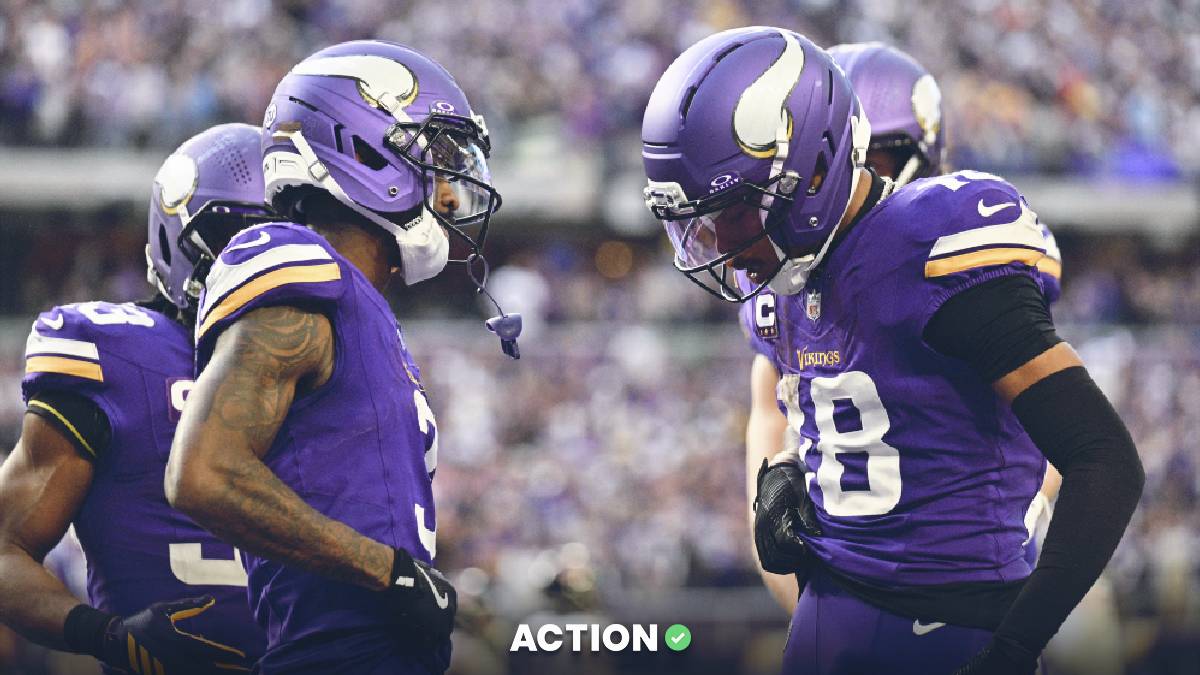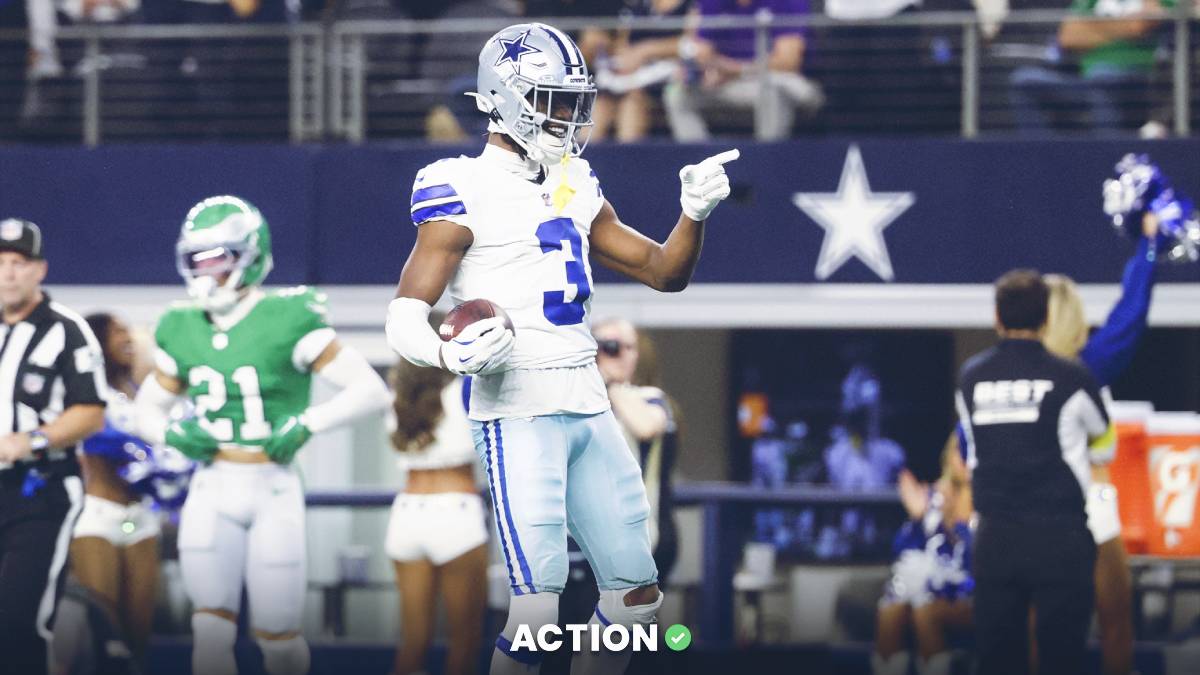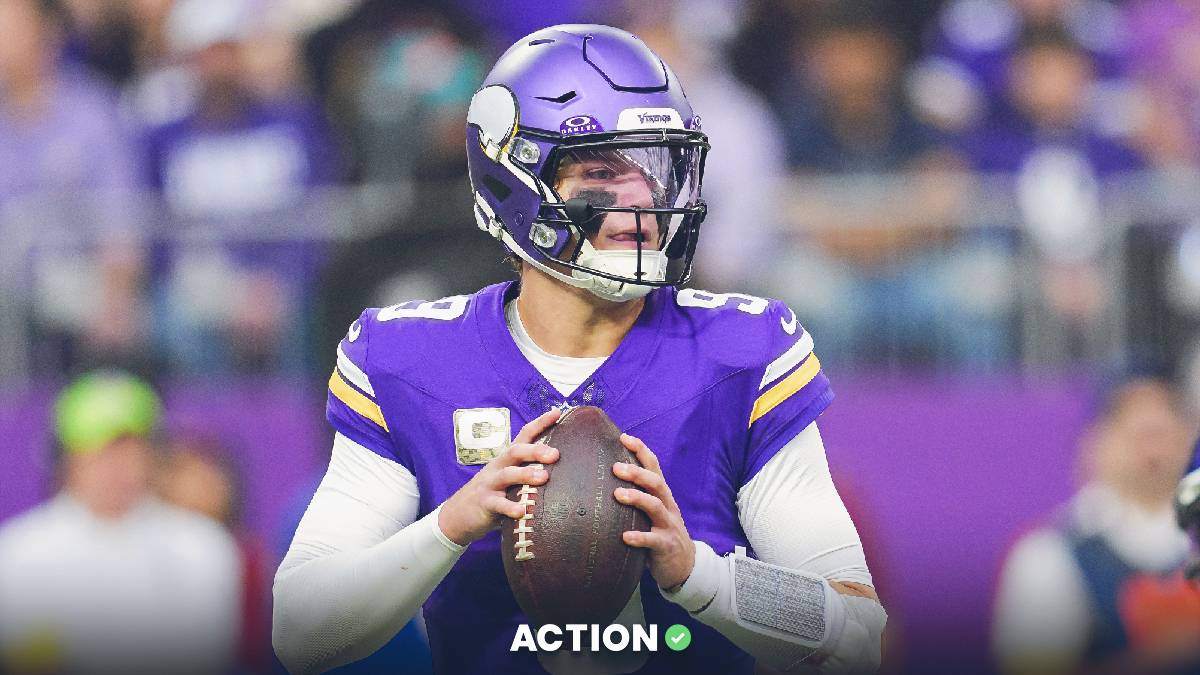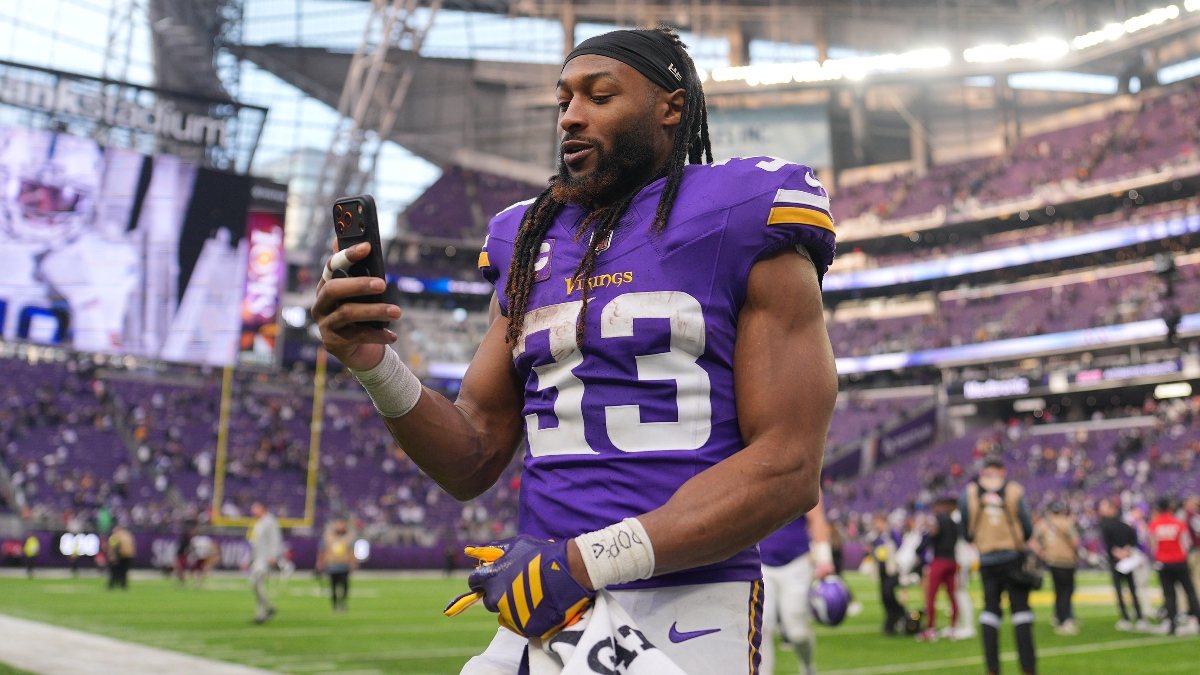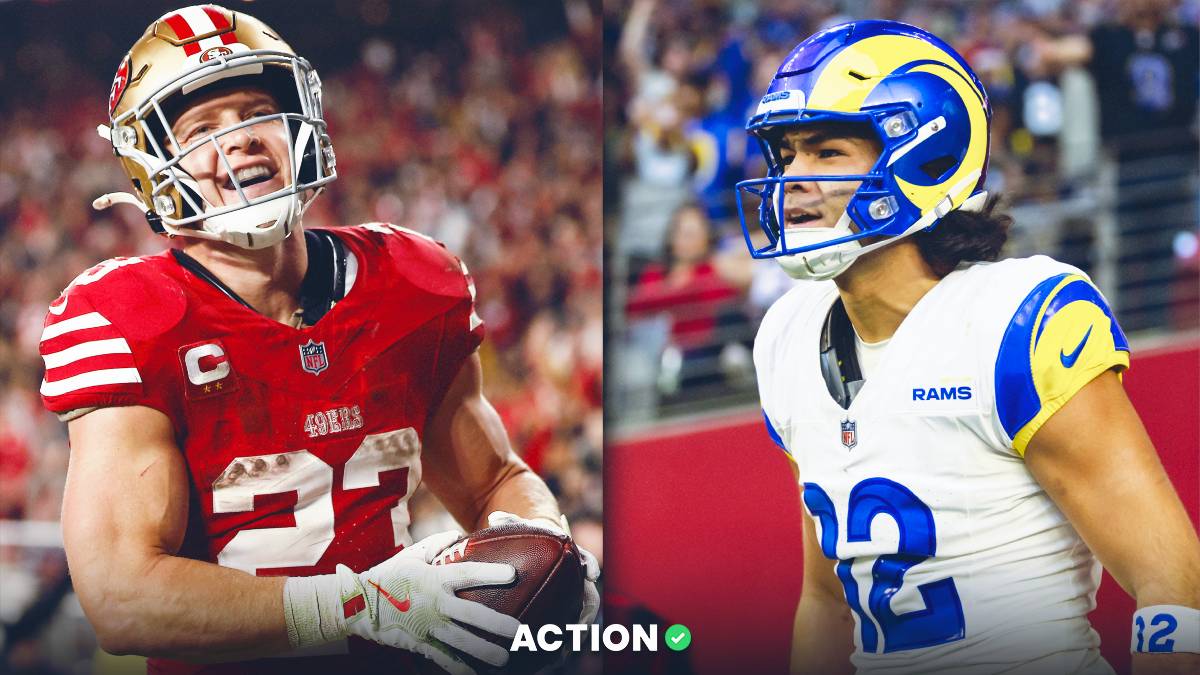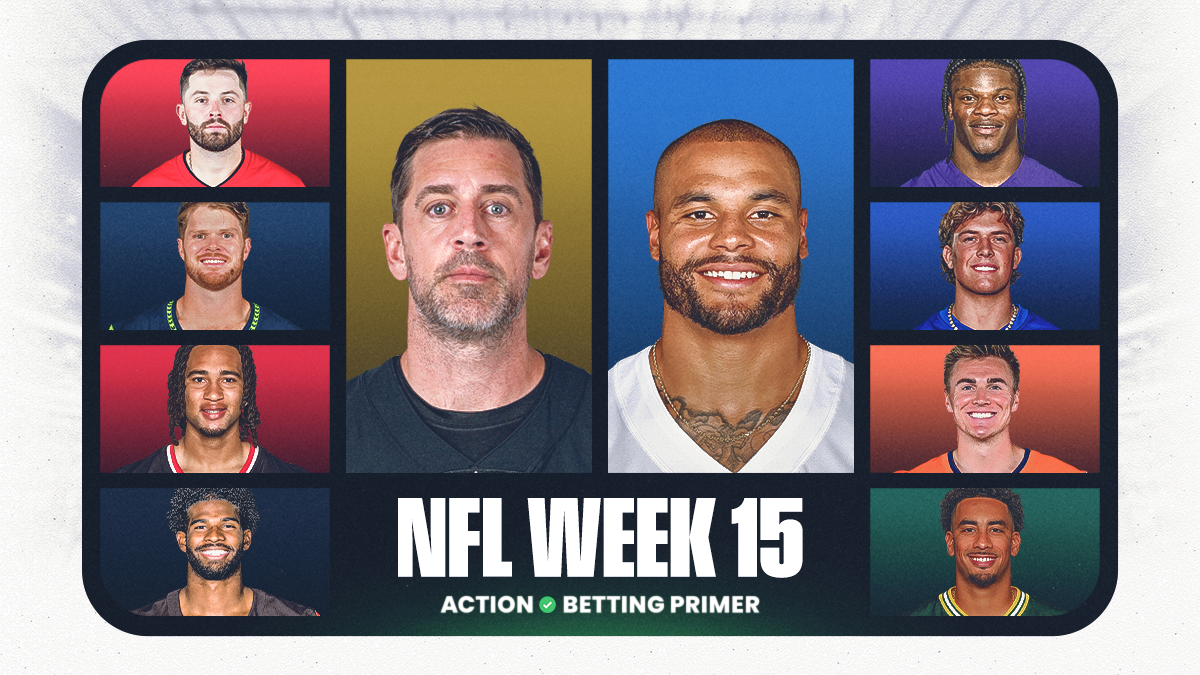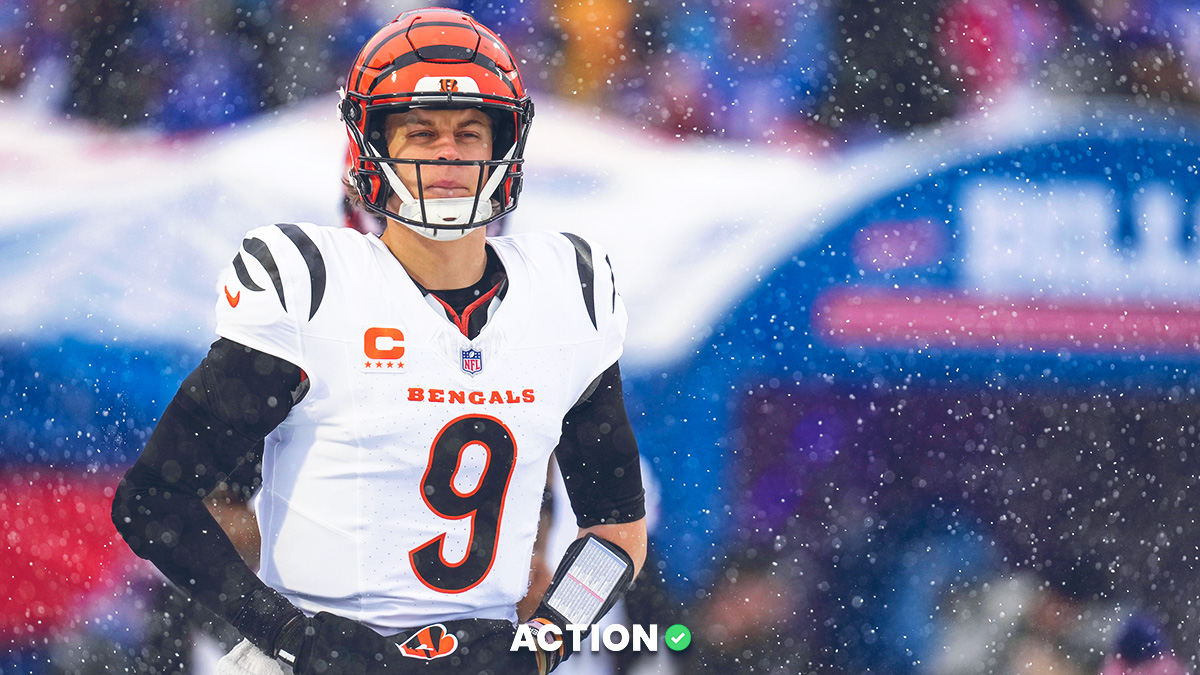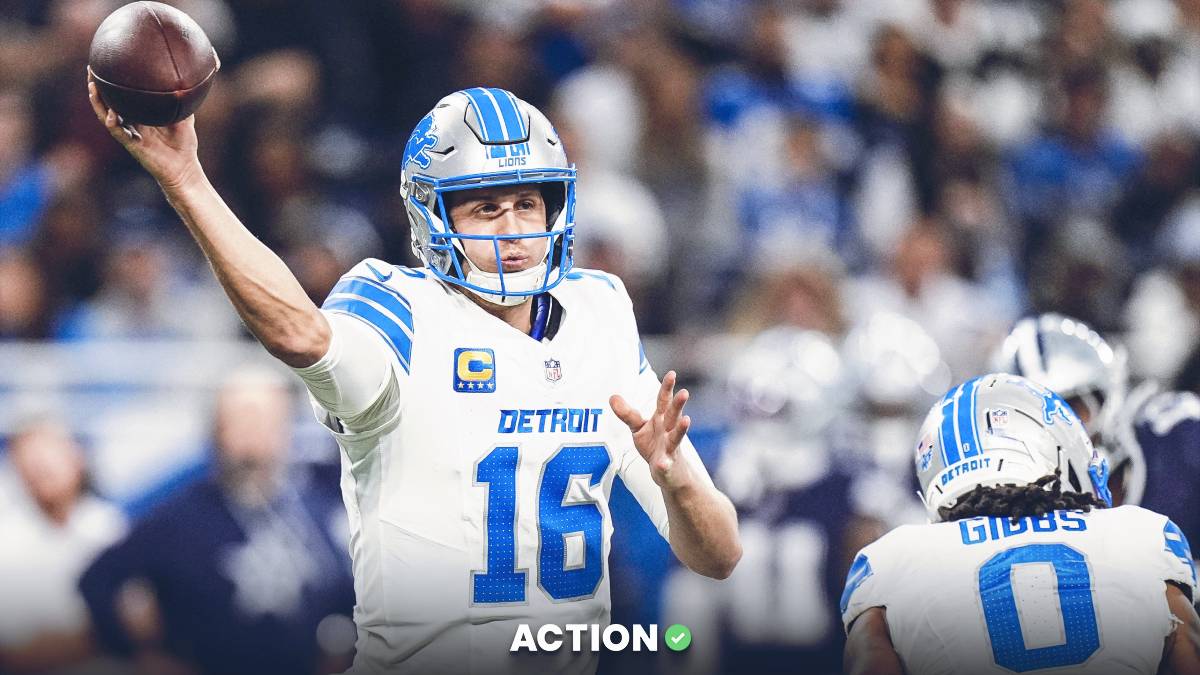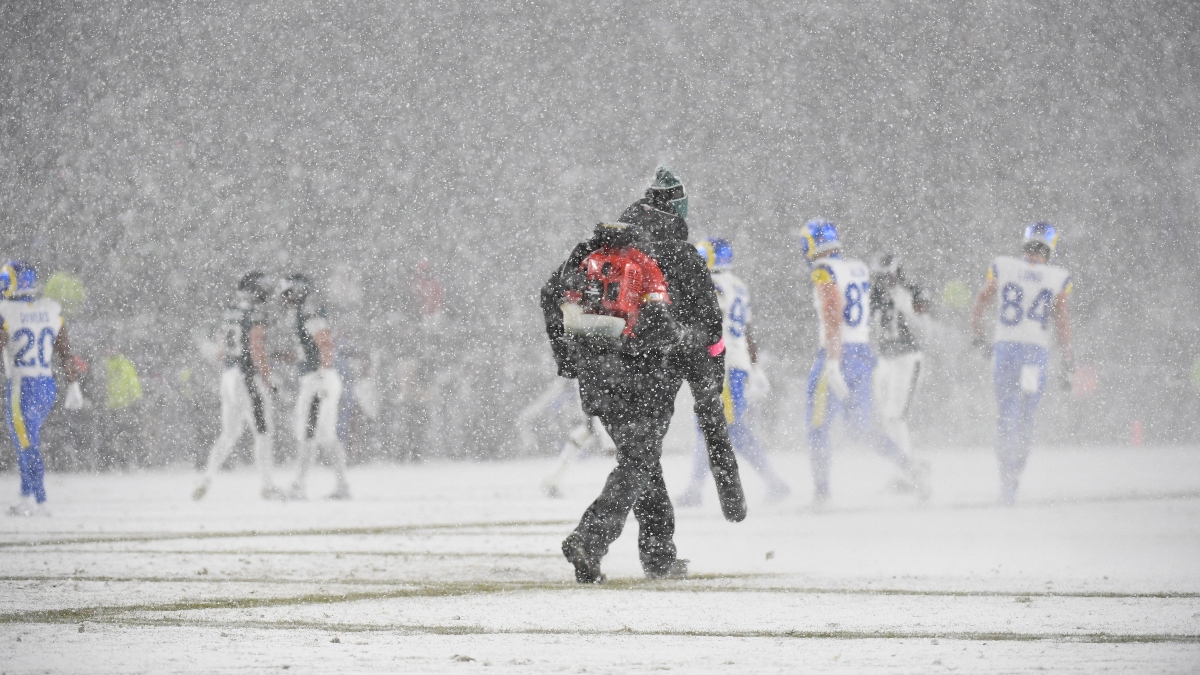Fantasy playoff pools have gained popularity across a handful of sports in recent years. The NFL is no exception.
The rules vary league to league, but the basic premise is this:
- Pick a "fantasy team" for the playoffs — 1 QB, 2 RBs, 3 WRs, 1 TE, etc.
- Everyone has access to every player. There is no salary cap or draft.
- Players accumulate points for as long as they're still alive, so you want players on teams who will go far.
- Some leagues cap how many players you can take on a given team.
- These pools are often big, so you need to differentiate yourself to win.
I wrote about my strategy for MoneyPuck's NHL fantasy pool and titled it "How to Finish First or Dead Last." That's because I understood my goal — I wanted to win, which means I needed to make high ceiling, low floor decisions. If the floor dropped out, I would have finished at the very bottom.
I finished 17th out of 613 teams by completely avoiding the Avalanche and Oilers, whose star players were selected by more than 70% of the entries. This strategy would have backfired had both those teams made deep runs, but who cares? Finishing just outside the money and dead last pay the same.
You're probably not going to win your NFL pool. I'm probably not going to win mine. And that's OK.
So swallow your pride and accept that by actually trying to win, you might just finish dead last.
This piece is meant to be timeless but uses examples from the 2021 NFL playoffs.
What Needs to Happen to Win
There are three main things that need to happen to win a pool like this:
- You need key contributors from both Super Bowl teams.
- You need those players to have good games leading up to the Super Bowl.
- Most likely, you need some differentiation to set your lineup apart.
The unique wrinkle in these playoff pools is the need to balance performance and longevity. Najee Harris commands a huge workload for the Steelers, but it's likely he only plays one game.
But everyone knows that you need to pick players who will go far. That's not an advantage.
All sounds easy enough, right? Let's dive into how you can get an edge.
1. If You're Not First, You're Last
Like DFS tournaments, the payouts for most pools are wildly concentrated at the top.
Take the FFPC's fantasy playoff pool with 7,250 entries. Almost 70% of the available prize money is paid to the top 10 spots with most of that going to first.
To hit the top 10, you need to finish better than 99.86% of entries.
To even finish in the money at all, you need to finish better than about 88% of entries.
| Place | Prize $ | % of Pot |
|---|---|---|
| 1st | $500,000 | 41.49% |
| 2nd | $100,000 | 8.30% |
| 3rd | $50,000 | 4.15% |
| 4th | $25,000 | 2.07% |
| 5th | $12,500 | 1.04% |
| 6th | $10,000 | 0.83% |
| 7th | $10,000 | 0.83% |
| 8th | $10,000 | 0.83% |
| 9th | $9,000 | 0.75% |
| 10th | $8,000 | 0.66% |
That means 88% of the people who enter will not finish in the money.
You don't want to finish in the top half. You don't want to have a "respectable finish." Finishing in the 85th percentile is the same as finishing dead last — you get nothing.
Even in a 100-person pool run by your coworker, only the top 3-5 spots will get paid out.
If you take the same players as everyone else, you'll need to nail the perfect lineup in every spot. If you take a less likely scenario, there's more room for error within your individual choices.
2. Get Leverage on the Field
A lot of people think going "contrarian" means taking players that no one is going to take. This year, that would be the Steelers or Eagles.
You don't want to be blindly contrarian just to do it. You want leverage, which is a combination of ownership and upside.
Our Sean Koerner has helped a lot of people win their March Madness brackets the last two tournaments by recommending you take the least-popular No. 1 seed.
I like his mental framework: "The best way to gain an edge against the field is to compare the projected chance for a team to win against how many ESPN and Yahoo! brackets that team is picked in. This is called Leverage — i.e. the percent difference between the two — which we use to bet on outcomes that are more likely than the public realizes."
So you shouldn't take all Steelers and Eagles. You need to take under-owned players who have a realistic chance to get to the Super Bowl.
A leverage example for this year: If only 5% of entries will take Ryan Tannehill and 50% will take Aaron Rodgers but their probabilities to make the Super Bowl are not that far apart, you're getting a huge edge on the pool if the Packers lose early and the Titans make the Super Bowl.
Half the pool will essentially be eliminated if the Packers lose early.
Some examples of leverage plays:
QB: Ryan Tannehill, Titans
One fewer possible game for Tannehill complicates things, but no one will want him because he doesn't put up monster fantasy numbers. His team is finally healthy, and the market is probably undervaluing their chances to reach the Super Bowl.
I'd guess he will be the eighth- or ninth-owned QB behind Rodgers, Tom Brady, Patrick Mahomes, Matthew Stafford, Dak Prescott, Josh Allen, Kyler Murray and Joe Burrow, and come in at sub-5%.
RB: Leonard Fournette, Bucs
Fournette might be under-owned because he's been hurt so it's worth taking a flier on his upside.
WR: Tee Higgins, Bengals
Higgins had brilliant games down the stretch but everyone will remember Ja'Marr Chase's historic 266 yard, 3-TD game against the Chiefs in Week 17.
If you like the Bengals, Higgins should be much lower-owned than Chase and their projections are similar.
TE: Take Your Pick
Tight end ownership will be very concentrated around Travis Kelce, then Rob Gronkowski and George Kittle.
Take your pick between Zach Ertz, Tyler Higbee, Dalton Schultz and Dawson Knox. They should all be similarly-owned (Ertz possibly the lowest since Arizona is an underdog) based on which team you like the best.
3. Ownership Is Concentrated
We can use some past FFPC data to understand just how concentrated ownership is at the top of each position.
In 2019:
- Just 4 QBs made up 70% of all rosters
- 4 TEs made up 95% of rosters
- 3 RBs were on > 50% of rosters
- 2 WRs were on > 45% of rosters
Ownership Percentages in the FFPC Playoff Challenge pic.twitter.com/bDF3uFwlvg
— Justin Woodruff (@WoodJustRuff) January 6, 2019
That means you're gaining a meaningful edge no matter who you take if you can just avoid the top cluster of players at each position.
The top clusters will be different sizes depending on the position. People tend to gravitate toward the same running backs and tight ends, but are more spread out at quarterback and receiver.
And you don't have to avoid everyone at the top. But you need some differentiation.
4. Get Contrarian Within the Elite Teams
If you really like the Packers, it might pay to be contrarian within the Packers' roster itself.
I imagine Aaron Jones will be much higher-owned than A.J. Dillon in 2021, but their workload split to end the season was pretty even. About a 60/40 split in Jones' favor.
There are some plausible scenarios in which Dillon outscores Jones this postseason:
- Dillon vultures TDs.
- Jones gets hurt.
- Dillon gets the hot hand and the Packers ride it.
Is Jones more likely to outscore Dillon? Of course. But if Jones will be 40% owned and Dillon 5%, it pays to gamble on that leverage.
5. What to Do With the Bye
The bye is a huge factor if you're betting a team to win Super Bowl. It makes their path much easier.
But in these pools, we need the teams to advance and score fantasy points. That means the Titans and Packers are at a slight disadvantage because they can only play three games.
That doesn't mean you should avoid them all together, but understand their upside is somewhat capped compared to the teams that can play four.
6. Don't Be Scared by Injuries
If finishing last doesn't matter, you can't be afraid to gamble on players who might fly under the radar because they didn't play at the end of the regular season or are questionable entering the Wild Card Game.
There's massive upside in taking a player who could step back into a high-usage role if healthy.
7. Balance Conferences
To win a big pool, you'll need to nail both Super Bowl participants. If you go too heavy on too many NFC teams, you're limiting the chances that happens.
Ideally, your roster will be heavy on all four Conference Championship Game participants.
8. Fully Commit to Your Narratives
To win a big pool, you need to fully commit to a narrative. You have to squeeze every possible point out of the Packers losing early if you do fade Green Bay.
So take the defense you believe will knock Green Bay out. If the Packers do beat that team, it doesn't matter because you were fading the Packers anyway.
Because the NFL re-seeds after each playoff round, it makes it harder to project who the Packers will play. But if the chalk holds, Green Bay would host the winner of Rams-Cardinals.
If that team beats the Packers, you gain a huge edge since so many pool entries will be drawing dead with their Green Bay-heavy rosters, and you get the bonus points from whatever that defense did to actually beat the Packers.
9. If You're Limited to 1-2 Players Per Team
In FFPC, you can only take one player on each team. In other pools you can only take two players per team. That changes things.
In these situations you want the four best players on your roster all in the Conference Championship Games, and both quarterbacks in the Super Bowl.
So plan accordingly. If you love the Bucs, make sure you're using your 1-2 Bucs spots on high-upside players, not a kicker or defense.


